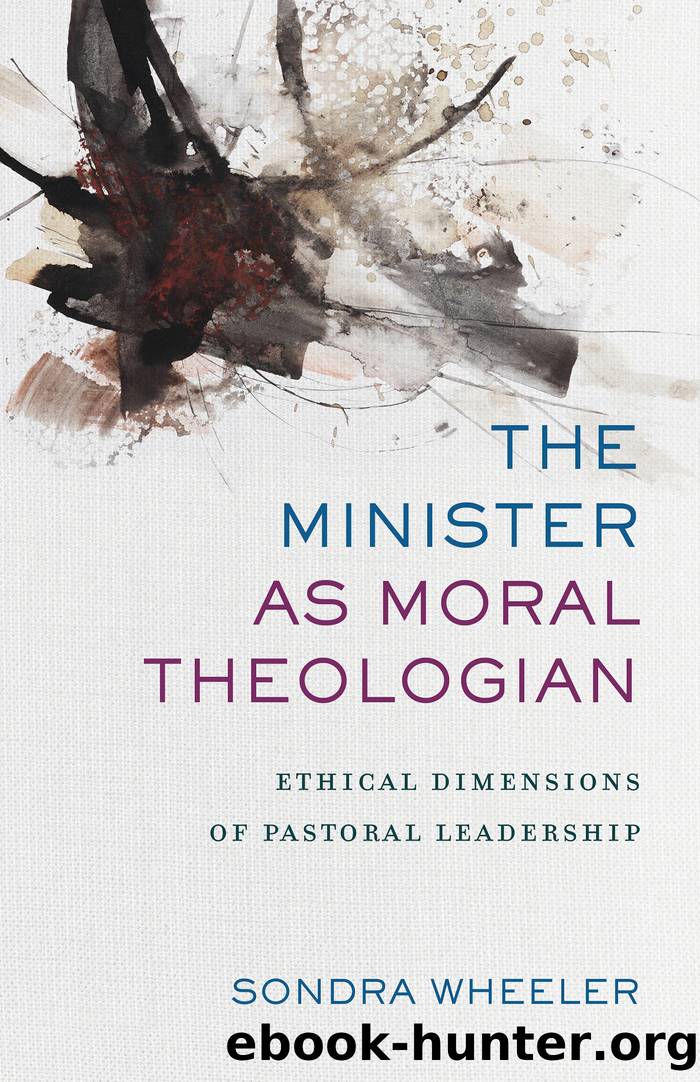The Minister as Moral Theologian by Sondra Wheeler

Author:Sondra Wheeler
Language: eng
Format: epub
Tags: Pastoral Theology;Clergy—Professional ethics;Christian leadership;Professional ethics;Christian ethics;REL074000;REL067070
ISBN: 9781493410293
Publisher: Baker Publishing Group
Published: 2017-03-27T00:00:00+00:00
Guidelines for Using Resources Wisely
Scripture
(1) Teach your congregation about the history of the Bible. Many lifelong believers have very little idea of how the Bible came to be, the breadth of time and circumstance that attended its writing, or the layers of tradition that are evident even within a single book. The purpose here is not to âdemythologizeâ the text10 by substituting a historical-critical approach for the idea of revelation or the ascription of authority. It is to help Christians understand the textured and communal nature of the process by which its revelation was received and its authority recognized. We honor Scripture by attending to the book we actually have, not by treating it as if it were the product of a single inspired writer, or as if it were written in a time just like ours and addressed to our questions. A better understanding of the character of our central book will help us to draw upon it more fittingly to guide our contemporary lives.
(2) Begin with exegesis. If a passage or a group of them is to be taken as a source of moral guidance, we must start by understanding it as well as possible in its own historical, social, and literary setting. The use of Scripture for ethics raises all the questions that should undergird responsible preaching. What do we know about who is speaking and to whom? What is going on in the community where this is being written, and what can we know about the writerâs purpose? To what genre does this text belong, and how does this passage fit into the larger work of which it is part? What is the theological point or significance of the directly ethical material? This is not to say that a teacher ought to drag his or her students through the fine points of Greek grammar or redaction criticism. It is rather for teachers to prepare diligently so that they can provide the best insight into what these texts meant and why they are important for us to wrestle with.
(3) Let the texts of Scripture speak in the mode proper to each one. There are many kinds of material that offer moral guidance and instruction. We are affected by the heroes we seek to emulate and the ideals we strive for. Stories and examples shape us, as do the laws we enshrine and the rules we obey. At the center for Christian ethics is the narrative of Christâs coming, his faithful life, his obedient death on the cross, and his vindication through the resurrection. All of these forms can bear powerful and important moral lessons, but they do not all operate in the same way. It is important to respect these differences and not seek to extract rules from poetry, or logical proofs from parables, or ethical principles from historical sagas.
(4) Take account of all the texts that bear on an issue. If the question is âWhat does the Bible say about X?â then it is important to reckon with every text that might be directly relevant.
Download
This site does not store any files on its server. We only index and link to content provided by other sites. Please contact the content providers to delete copyright contents if any and email us, we'll remove relevant links or contents immediately.
The Secret Power of Speaking God's Word by Joyce Meyer(3178)
Signature in the Cell: DNA and the Evidence for Intelligent Design by Stephen C. Meyer(3130)
Real Sex by Lauren F. Winner(3014)
The Holy Spirit by Billy Graham(2944)
The Gnostic Gospels by Pagels Elaine(2527)
Jesus by Paul Johnson(2352)
Devil, The by Almond Philip C(2324)
23:27 by H. L. Roberts(2248)
The Nativity by Geza Vermes(2226)
Chosen by God by R. C. Sproul(2161)
All Things New by John Eldredge(2159)
Angels of God: The Bible, the Church and the Heavenly Hosts by Mike Aquilina(1957)
The Return of the Gods by Erich von Daniken(1942)
Angels by Billy Graham(1922)
Knowing God by J.I. Packer(1854)
Jesus of Nazareth by Joseph Ratzinger(1811)
The Gnostic Gospel of St. Thomas by Tau Malachi(1793)
Evidence of the Afterlife by Jeffrey Long(1786)
How To Be Born Again by Billy Graham(1777)
